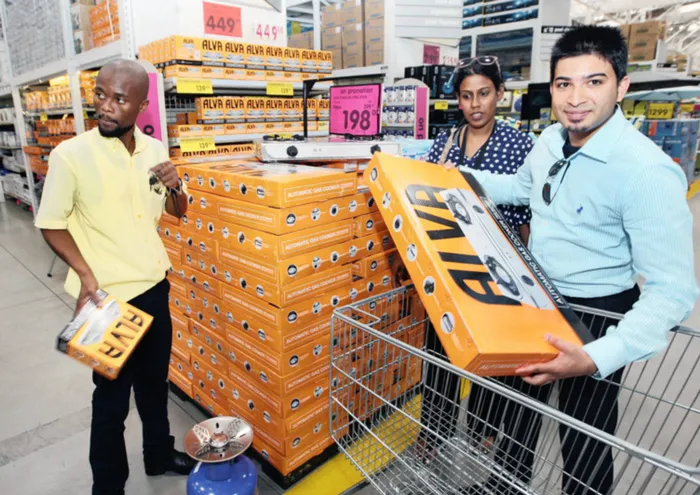Interview: Eskom a burden to business

110215 (C) Nafisa and Keagan Kistan (R) looking at a gas option to prepare themselves from load shedding.They are helped by Anele Moko (R) at Makro Woodmead North of Johannesburg.photo by Simphiwe Mbokazi 110215 (C) Nafisa and Keagan Kistan (R) looking at a gas option to prepare themselves from load shedding.They are helped by Anele Moko (R) at Makro Woodmead North of Johannesburg.photo by Simphiwe Mbokazi
Siphamandla Goge
THE ESKOM power crisis was putting strain on businesses and making it difficult to sell the country as viable and a stable investment destination, Mineral Resources Minister Ngoako Ramatlhodi said yesterday.
In an interview with Business Report on the sidelines of the 2015 Investing in African Mining Indaba in Cape Town, Ramatlhodi said initiatives to address the inadequate power supply would take at least two years to add more energy to the grid.
“It does put a strain and that is why my ministry is part of the war room that has been established by government composed of economic ministers to address Eskom issues in particular,” he said.
This means the power crisis would be around for a while, given persistent delays in the construction of the country’s two new power stations, Medupi and Kusile.
Without providing much detail, he said government was juggling different options to resolve the energy crisis, which had already costs the economy about R300 billion since 2008.
“It’s a basket of initiatives, some longer and others immediate, so I think we will resolve the energy crisis fairly quickly,” said Ramatlhodi.
These included private coal power stations in the power system and signing up partners for the development of nuclear energy.
The government was allowing independent producers to join the grid. Applications had been received and these applications had been processed since December.
Ramatlhodi said he did not know how he had performed during the Investing in African Mining Indaba, and was adopting a wait-and-see approach.
“I do not have a sense of the climate out there,” he added.
On the legislative and policy front, Ramatlhodi agreed that the government was running out of time with the Mineral and Petroleum Resources Development Amendment Bill, which was sent back to Parliament by President Jacob Zuma to ensure that it met constitutional muster.
Industry insiders believed that it created uncertainty and confusion for investors about the regulation of the industry.
Ramatlhodi said that the country had to move to finalise the bill within at least six months, but denied that uncertainty existed. He said he was adamant that fracking would proceed in the Karoo, despite environmental groups challenging that.
Last month, the Cancer Association of SA said that about 150 chemicals that companies used in shale-gas fracking were known to cause cancer or disrupt the endocrine system, leading to possible birth defects.
“We are going to do it. It is not a question of if, it’s just a question of when. The regulations are being finalised. We are going to be discussing them with concerned parties,” said Ramatlhodi.
The government’s role was to develop infrastructure to revive the mining sector, which contributed about 7 percent to the country’s gross domestic product and employed more than 500 000 people.
Ramatlhodi said mining, environment and water use authorisations would be issued within 300 days in order to provide certainty.